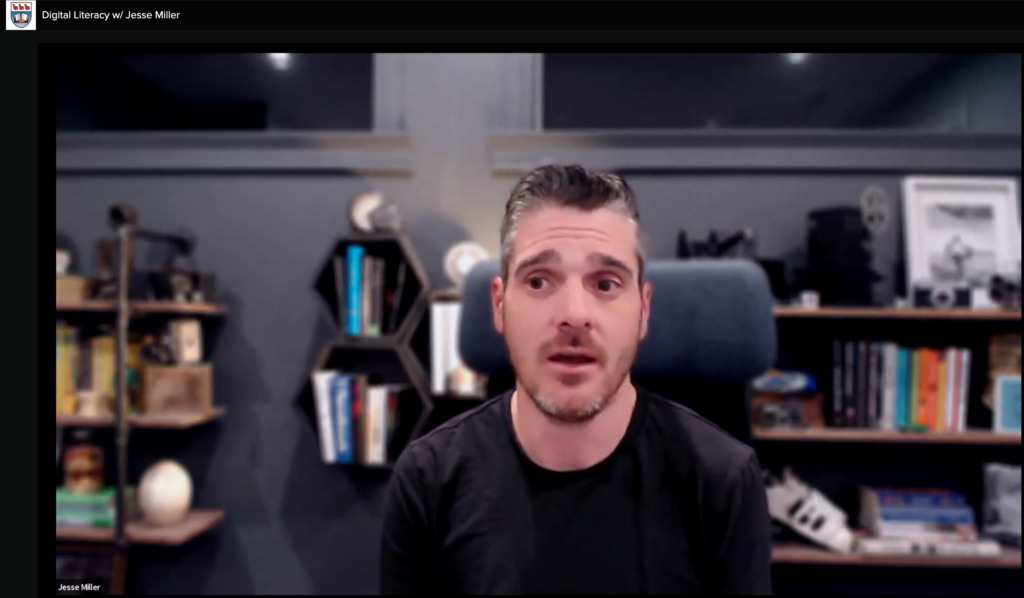Reflection on Guest Lecture – Jesse Miller
This week I am reflecting on the guest lecture with Jesse Miller on digital citizenship. Miller describes elaborate ideas about digital presence and advocates for the importance of learning what it means to be safe in online spaces and being cognizant of what we share online. Furthermore, Miller comments on the rise of cyber crimes such as fraud and extortion that target individuals through misleading emails and scams. Such crimes are part of the reason Miller believes in the need to be better equipped when navigating the online world because he mentions, “The people who don’t want individuals to be, you know, better educated in this space are usually profiting off of them” (Miller, 2025).

A point that stuck with me was Miller’s discussion surrounding network citizenship. He mentions:
I mean, I’d like to believe that we are citizens of the world, and that, you know, we live in a variety of societies that don’t necessarily need borders. But network citizenship is so appealing to me in the sense that I probably have more in common with somebody from Seattle than I do with somebody from Timmins, Ontario, but it is about where we are and how we grow… I can use the Internet to connect with somebody from a community that I’ve never even set foot in.
(Miller, 2025)
The internet is often demonized, and we fail to acknowledge how it may be a direct tool to counter rampant rates of anomie within Western society. Anomie was first introduced by the French sociologist Èmile Durkheim in 1893 and is still an ideology society grapples with in the 21st century (Olsen, 1965). Anomie can be defined as “a condition of inadequate procedural rules to regulate complementary relationships among the specialized and interdependent parts of a complex social system. This situation of inadequate procedural rules might be caused by any number of social factors, including obstacles to communication, conflict among inconsistent rules, social resistance to rule formation [and] rules which are not specified or understood” (Olsen, 1965, p. 40).
Essentially, anomie is the manifestation of the lack of close ties individuals have within society. Members of society do not feel connected to those around them and this is tied back to unclear “rules of conduct” where “interaction must proceed on a trial-and-error basis, which often results in conflict, not solidarity” (Olsen, 1965, p. 39). There are a plethora of contradicting expectations placed on members of society such as what job to have, how to dress, and what political ideas to hold. This overwhelmingness creates a situation where the lines between right and wrong are blurred. This leaves many with an unclear motivation, an unclear root, and no foundational grounding in a belief. Without something to hold on to, you feel like you are cut out, isolated, and not connected to the larger group around you.
The internet as Miller mentioned has become instrumental in refurbishing connections. Although a person’s physical environment might not provide a sense of belonging, they can build connections with communities around the world. This is a fascinating idea that prompts questions about how sustainable online communities are. I wonder what we are indirectly encouraging within our communities. Does this encourage individualism and a culture that enables disengaging from complex social problems within our communities such as homelessness or the drug crisis? This is something to consider as we strive towards social cohesion within contemporary society.
References
Olsen, M. E. (1965). Durkheim’s two concepts of anomie. The Sociological Quarterly, 6(1), 37-44.






